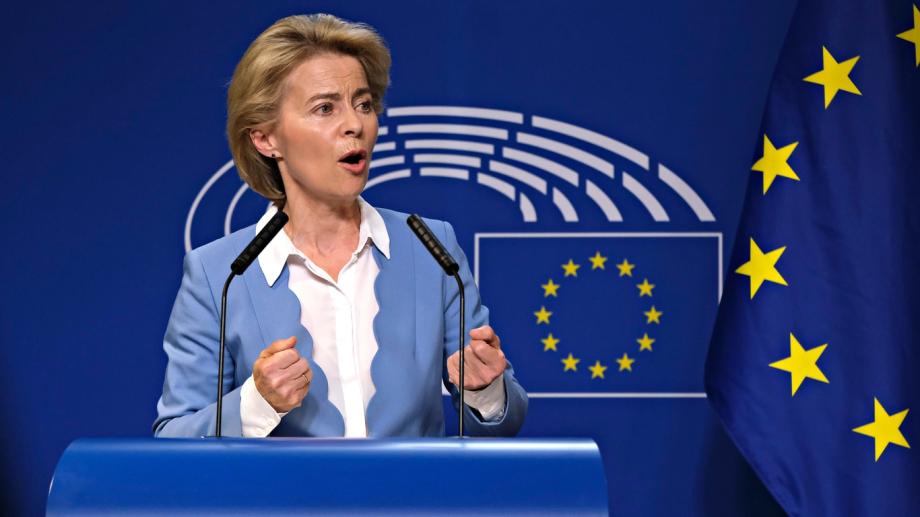What we can expect from the (European) State of the Union address?

The State of the Union address is a relatively new practice in the European Union (EU) introduced only ten years ago. Despite the apprehension that the address is only another bureaucratic exercise for EU expert community and policymakers, rather than what it is - an opportunity to connect with the public in a similar vein to the United States - it is important to acknowledge the EU’s efforts to make our political life more democratic and transparent and to provide the possibility for each and every citizen to be informed.
With just a day before the first address of Ursula von der Leyen as President of the Commission on 16 September, it is worth thinking about what will be said and what cannot be left out. Has the Union made any progress towards achieving its geopolitical goals, or did COVID-19 derail plans entirely?
Key issues
The top three issues we will likely see as headlines in the address are the economic recovery, the push for greater strategic autonomy, and the desire for a stronger Europe internationally.
First, the cornerstones of economic recovery are the twin transitions towards green and digital resilient economies. These leading priorities are underpinned by the NextGenerationEU recovery package and the new EU Budget. All in all, with over EUR 1.80tn at hand for the next seven years, the Union seems equipped to embark on a transformation process that will allow economies to bounce back and internal markets to strengthen, along with the absorption of shocks and the creation of new jobs and innovation.
Second, the sense of urgency around the call for greater strategic autonomy mounted as the pandemic unfolded, and it was mostly triggered by the initial shortages of masks, ventilators and other medical equipment needed in Europe, as more Member States got severely hit by the deadly virus. The fragility of global supply chains and an over-reliance on production for strategic sectors in China awakened the public in Europe to a need to diversify, re-shore some production, re-think supply chain distribution and invest in a circular economy.
Third, a stronger Europe is required in the world, a Europe which promotes multilateral cooperation and the rules-based order, items which will be significant messages of the Commission President. We currently experience a highly fragmented, unpredictable and unstable era, with a renewed competition of great powers. In addition to fighting climate change, Europe needs to respond to turmoil and conflict in its periphery, manage migration, protect the open and free trade system and set standards for the disruptive emerging technologies that will alter our lives in the future. These global challenges can only be tackled within a multilateral context. Thus, this could be the window of opportunity for Europe in setting rules for the future of multilateralism.
Issues that cannot be left out
Europe currently faces other challenges that are too important to be sidelined. If not addressed properly, these could undermine the Union’s legitimacy in the long term. This list includes, first and foremost, Brexit. The outlook of the EU-UK relationship after December 2020 is quintessential for the future of the Union. A no-deal trade relationship jeopardizes years of negotiations and creative thinking about the post-divorce normalisation of relations.
Second on the list are the state of democracy and rule of law in Europe, which find themselves under threat in Poland and Hungary. In the 2020 Democracy Index, Freedom House delineated those countries as partial democracies, something unimaginable for the EU Member States a few years ago.
Last on this shortlist is the safeguarding of Schengen. The image of unilateral and uncoordinated border closures as coronavirus cases started to rise in Europe will remain logged in the memory of citizens. Schengen and its open flow of people across borders have for a long time represented a climax of European unity and integration, an achievement admired by many around the world. Yet, a small virus originating in China wreaked a severe level of havoc in days to progress which had been achieved over the decades.
Towards unity and solidarity
This past year has brought profound transformations in our lives, both as individuals and countries and as a global community. The following years will not necessarily be lighter. The race for a COVID-19 vaccine is still going on, and until a cure is found we need to re-imagine what our new normal will be like. Europe stands at the crossroads, and the choices we make now will define the future the generations after us will be left to inherit. Unity and solidarity remain key in ensuring no one is left behind. We need to continue to promote our values and principles and stay true to what we stand for. But we need to also put our house in order before cracks in the walls permanently damage the structure.
The State of the Union address should lay out a vision for the future of Europe and we can only hope that in a few years’ time we look back and will be proud of the decisions we made. Hopefully, one day the State of the Union speech, as with the address in the US, will be awaited for by Europeans with bated breath. In order to do so, the European Commission can make a few adjustments to its format. Firstly, it can organise the address in prime time, not during working hours, which has made public involvement difficult. Secondly, the EC should make an effort to ‘broadcast’ it to all Member States television networks, and then potentially in the long-term, it can invest in a professional pan-European channel which would inform fellow European citizens about developments in the “Brussels bubble”.


Associate Fellow, Centre for Global Europe
Associate Fellow, Centre for Global Europe